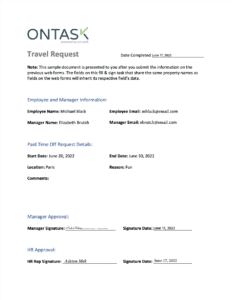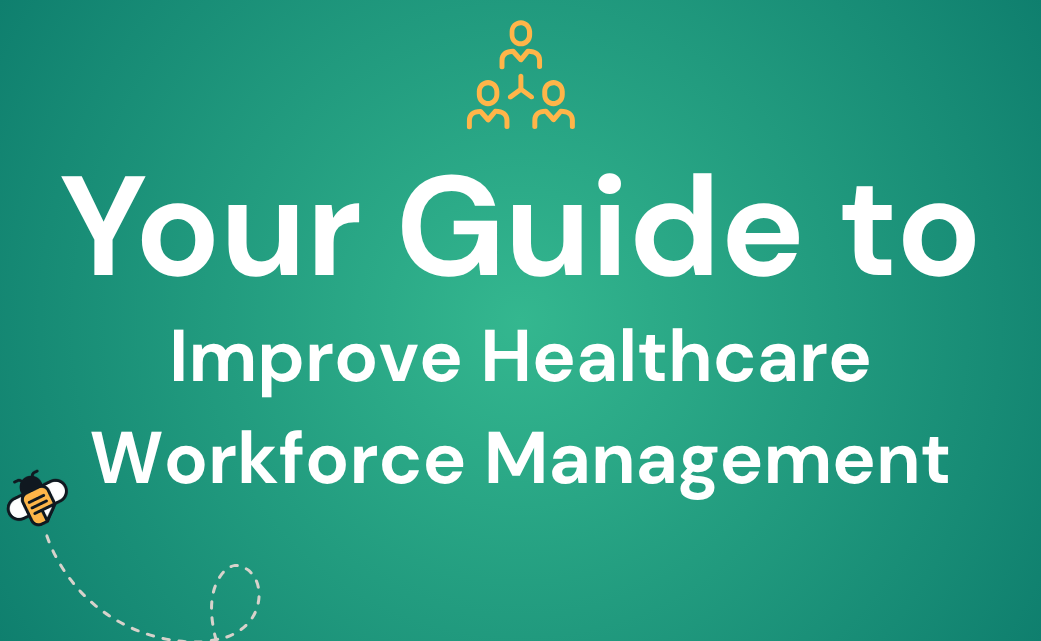The legal profession and paperwork overload are practically synonymous.
Contracts, court filings, briefs, affidavits, agreements, and other legal files can pile up, leaving law firms with thousands of documents to manage.
With this tedious and time-consuming nature of handling legal paperwork, human error occurs often. Moreover — as a Workplace Relevance Report by Coveo found — employees spend 3.6 hours of their workday hunting down critical documents.
The missing link here? A legal document management solution.
We’ll explore the meaning, key features, and benefits of document management tools, then share the best document management software for law firms to bolster collaboration and knowledge sharing. Let’s jump in.
Defining Legal Document Management Software

Physical paper logs are complicated to manage and store.
So naturally, law firms are constantly searching for smarter ways to reduce the amount of paper they use while enhancing their productivity — with the least physical effort.
With legal document management software, it’s easy to manage, store, edit, and download digital documents with no trouble. You’ll eliminate time wasted, which — according to Coveo’s report — causes 1 in 6 employees to quit their jobs because of the difficulty of accessing relevant information.
Legal document management systems provide a streamlined way of managing client documentation, regardless of practice area. You won’t have to worry about taking notes, making tons of file copies, or loading volumes of paper on a desk again with the right tool on your side.
Why Most Law Firms Need a Document Management System
On any given day, lawyers have to research cases, gather evidence, review legal material, draft briefs, advise clients, make court appearances, and more. I’m sure you can resonate with this full plate of tasks.
Depending on the specificities of your firm, it takes a law professional an average of 40-66 hours a week, or more, to fulfill the many requirements of the job. A significant part of this time is taken up preparing and filing legal documents.
Traditional or manual legal workflows are arduous, error-prone, time-consuming, and can negatively impact a law firm’s revenue earning potential because of time spent on non-billable work.
Modern law firms rely on legal workflow automation technology, eliminating human effort from handling their day-to-day workloads.
A legal workflow software investment powered by artificial intelligence (AI) and machine learning (ML) can help you reduce the time spent on non-billable work. And, you can automate a wide range of mundane tasks accurately, including:
- Creating contracts
- Carrying out legal research
- Conducting due diligence reviews
Ultimately, your team has more free time to focus on more strategic, complex, and profitable legal issues while creating the best client experience possible.
Let’s review the key features to expect in the best document management software for law firms.
Key Features Your Firm Needs for Better Document Management

The best document management software can save you valuable time, ensuring your legal practice runs more smoothly.
But, making the wrong choice can cost you in terms of efficiency and profitability.
So, how do you choose the right tools for your law practice from the dozens of options available? By determining the key features you need in a document management software solution.
Ideally, a document management software designed for law firms should offer a comprehensive suite of features that streamline document management processes and increase overall efficiency.
Though products vary, the best document management software for law firms will come with:
Search and Retrieval
Searching and retrieval are key elements of every document management system. A good law firm document management system will scan and process paper documents for easier storage in electronic format.
The search feature allows you to find specific files and folders using document templates, file attributes (title or metadata like tags and signers), or full-text searches. The retrieval feature regulates document access permissions using unique document identifiers like metadata and other specific search terms.
Security and Access Control
Law firms must operate under strict security rules, to keep client cases data confidential.
The best document management software will offer high-security standards, including encryption and secure SSL connections for safer document repositories. The system might also use permissions, passwords, and multifactor authentication to manage document access.
Collaboration and Workflow
An efficient document management system should facilitate better collaboration with the rest of the business. Plus, it allows you to regulate document or folder sharing and distribution with authorized persons.
Some systems offer role permissions, like View, where the user can only see the document, or Edit, where the user can edit its metadata.
Versioning and Audit Trail
As you change or update documents over time, you need access to previous copies for reference purposes. Document versioning checks files in or out of the document management system, giving you access to previous or current versions of a file.
Plus, you get an audit trail of any modifications done, by whom, and on which date or time.
Easy Integration
If you use various other business applications or software platforms to create or organize your documents, you need a document management system that integrates with your existing tools. That way, you can manage all your documents easily while keeping them organized.
Scalability
A document management system should evolve as your business grows.
Switching platforms every few months beats the purpose of implementing document management software, which is saving time, cutting costs, and improving efficiency and productivity.
Depending on the size of your business, the system you choose should be able to scale as your employees, revenue, service volume, and custom use cases increase.
Benefits of Legal Document Management Platforms

Centralized Document Management
Document management software increases transparency across the firm so employees can get the right documents when needed. The system puts all documents in one place, ensuring everyone works with the same set of information.
A centralized document repository can serve as a single source of truth across the firm while ensuring a quick search for documents using their titles, metadata, or full text.
Improved Organization and Productivity
With a document management system, your team of lawyers spends less time looking for files on multiple devices and platforms. They’ll find documents easily and faster and have more time to do higher-value legal work that requires human intelligence.
With built-in document versioning or version control, it’s also easier to track major revisions and ensure your team has the most up-to-date version.
Increased Collaboration
It’s critical to share documents with your clients and employees for better collaboration and teamwork.
Document management systems ensure employees can access the most recent document version in a secure space, and collaborate on files in real time. This improves productivity and eliminates the back-and-forth of editing through email threads.
Enhanced Security
Document management systems store your files securely and safely in a centralized, easily accessible repository. This enhanced security protects confidential and sensitive client and organization data so only authorized users can access it.
Some cloud-based document management software makes it easier to access files on the go from any location and time.
Combined with advanced security, the software ensures a secure and effective way to communicate between project stakeholders and still back up your documents for quick recovery in case of any disruption or disasters.
Cost Savings
Odds are, your law firm has a ton of paperwork. Document management systems ensure you go digital and save on resources, which drain your budget each month.
Some such costs include commercial storage (cabinets, storage bins, warehouse rent, copying and printing expenses), and time spent finding and organizing documents.
You also save on document security costs, like barred windows, security cameras, fire alarms, and more. In place of these, you get an advanced backup and recovery system in the software, which makes it easier and faster to locate critical files and folders and copy them to a different storage device.
Regulatory Compliance
Document management systems also help law firms stay compliant with industry standards and regulatory bodies.
You can track the documents’ history (e.g., creation, edits, or downloads) and get audit trails (e.g., activity logs, login attempts, and other changes). These help you prove your law firm implements effective system security measures and follows regulations and industry compliance practices.
Increased Accessibility
Employees need to upload, access, and download documents while preparing and filing legal documents. With legal document management software, they can access the files they need anytime and collaborate from any location.
Larger firms with huge staff can use permissions to keep their teams connected. These access permissions allow them to choose who can change or delete files or access certain spaces.
The best document management software for law firms will provide options for administrators to set specific employee permissions to instill structure and protect important files from being altered.
Docubee: Your Legal Document Management Software Solution
Regardless of document type or practice, handling day-to-day legal tasks and paperwork can be tedious and time-consuming.
Implementing a document management system like Docubee is typically easy and helps you streamline the experience for your partners, clients, and employees.
Docubee offers the key features and benefits of implementing a well-designed document management system, so you can set paper aside and take your legal practice to the next level.
Sign up for Docubee’s Free Trial to see how it can help you manage tasks, collaborate, secure your documents, and automate your legal workflows.














